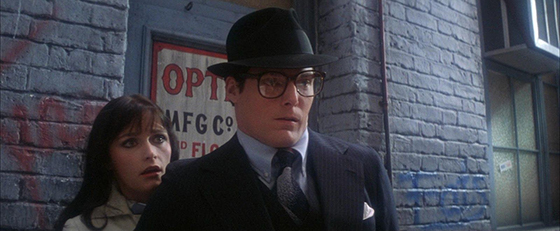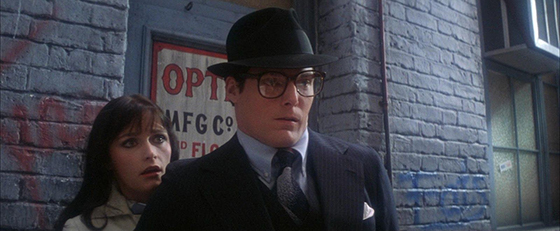Men of Steel
Donner’s origin story and Reeve’s interpretation of the character give us an alien who adopts the people of Earth as…


“The key word for me on him (Superman) is ‘inspiration.’ He is a leader by inspiration. He sets an example. It’s quite important that people realize that I don’t see him as a glad-handing show-off, a one-man vigilante force who rights every wrong.” – Interview with Gene SiskelThe 1978 Donner film runs with Shuster and Siegel’s original idea, from around the fringes and not via direct exposition. While the sequel deals more directly with more complex themes, e.g. the reluctant savior, Donner’s origin story and Reeve’s interpretation of the character give us an alien who adopts the people of Earth as his own. The modern superhero film revels in the swelling music and heartstring-tugging birthing of the archetype—Bruce Wayne rising to the swell of Zimmer’s pulse music in his man cave, Zak Snyder’s Man of Steel learning to fly, all 120 minutes of the heavily computer-animated banalities of JUSTICE LEAGUE. But Donner’s Superman gives us only one moment of smug self-satisfaction: Kent, with a smirk, palming the bullet that almost killed Lois Lane. For a brief moment, Clark is content not in his abilities, but that he can and does use them to save us from our own recklessness… The only modern parallel in superhero cinema is Steve Rogers shielding his platoon from a dummy grenade in CAPTAIN AMERICA or Bruce Willis’ entire performance in UNBREAKABLE. Brooding darkness in the D.C. universe has become something of a running joke. It seems most audiences and critics agree they have it backward: Self-seriousness set against ludicrously distant backdrops, versus humane and occasionally humorous takes on the everyday inanities of life, taking place in a real city populated by real people. It’s not in the fact that Steve Rogers is known by his real name, but that he treats the mantle of being Captain America the way that Martin Sheen’s Jed Bartlet treated the Office of the President on The West Wing—a role apart from himself that, perhaps, someone else might someday fill. In a scene in SUPERMAN in which our hero is trapped in an underground bunker, weakened and delirious from a chest of Kryptonite, Luthor’s assistant Eve Tessmacher (Valerie Perrine) tests his morality. In this moment, the conventional wisdom that the “mild-mannered reporter” is the costume is completely upended. Superman is what he does. Clark Kent is his true identity—the unflappable, sincere, and optimistic champion of the good in us. Like many displaced, Jewish immigrants during World War II (many of whom were turned away under the belief that they were spies), the son of Jor-El came here from a distant place, with nothing, assumed a pseudonym, and made his own story, his own legacy, in the hearts and minds of other desceendants of immigrants who immediately understood the inner and outer narratives at work. Some interpret Superman as the miracle-making savior with flowing locks of hair, not unlike the famous image of Jesus commissioned by the Church and engineered by commercial artist Warner Sallman. But to me, Superman is the carpenter who saw something unjust going on at the tables near the temple, rolled up his sleeves and fixed it with his bare hands. FOOTNOTE: D.C. Comics was acquired indirectly by Warner Bros. Pictures after its remaining founder, Jack, sold his interest to Seven Arts in 1967. As Neal Gabler implies in his book An Empire of Their Own, many of the Jewish entrepreneurs of the studio system left exhausted and demoralized from battling the House Un-American Activities Committee. Somewhere in these four decades hence, the story of the Brothers Warner (born Wonskolaser, sons of Polish-Jewish immigrants) was lost in translation… Like Kirby (Jakob Kurtzberg), Shuster (Shusterowich) and Siegel, their families came to this continent with nothing, and out nothing created and perpetuated one of our most beloved institutions. Immigrants, it can be argued, are leaders by inspiration. They sacrifice and often leave everything behind to come to America and start a new life, as did my parents. To me, America is the place we all come to tell our individual stories, and out of those stories form a collective narrative.
A newly-restored print of SUPERMAN is playing tonight at the Texas Theatre to commemorate the film’s 40th anniversary.